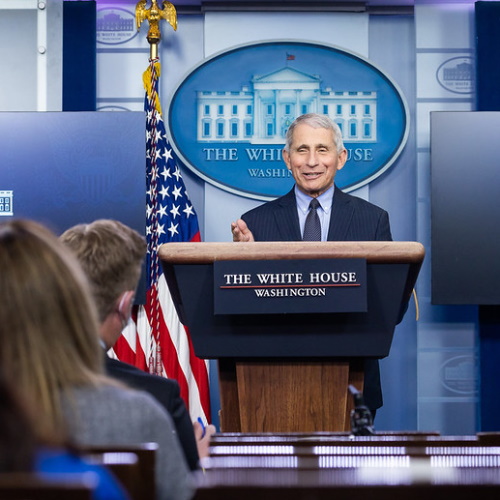Arguments for and against Fauci have been political since the first cases appeared in the US.
Feb. 10: Trump, at a political rally, says the coronavirus
will be gone by April when the weather gets warmer, but doesn't offer scientific explanation.
Feb. 16: Fauci
says on CBS' "Face the Nation" that "it would be a stretch to assume that it's going to disappear with the warm weather."
March 20: At a White House coronavirus press briefing, Fauci
downplays Trump's declaration of the controversial drug hydroxychloroquine as a "game changer" and states the potential benefits of the drug was "anecdotal evidence."
Trump, who had been standing behind Fauci, then stepped forward to clarify: "We'll see. We're going to know soon."
March 22: Fauci says he can't "jump in front" of Trump when he gives misinformation.
March 24: Trump states he wants states open by April 12, but
Fauci cautions him to "be flexible."
April 5: Trump and Fauci again
tout different messages regarding hydroxychloroquine.
April 12: Fauci says on CNN that earlier efforts to stop the spread of COVID-19 "obviously” could have saved lives but top health officials faced “a lot of pushback about shutting things down.”
Ect, Etc,......
The bottom line is Fauci was all about science and Trump was all about politics. From the very beginning of the pandemic, every statement Trump made was political with the November election in mind. Fauci began to oppose Trump when those statements had no scientific basis. If Trump would have checked with Fauci, his medical advisor to see that his statements were based on sound scientific evidence, there would have been no problem. Of course, that's not Trump. He makes statements to grab headline, not to state facts. It's no wonder republicans hate Facui's guts and will say anything to discredit him.
Over the course of the coronavirus’ spread, President Trump’s relationship with Dr. Anthony Fauci has seemingly vacillated from support to disdain.
www.usatoday.com


